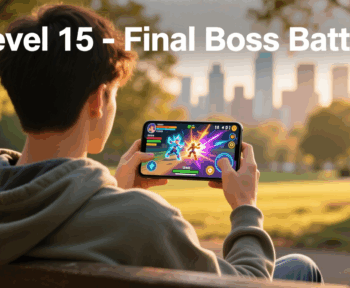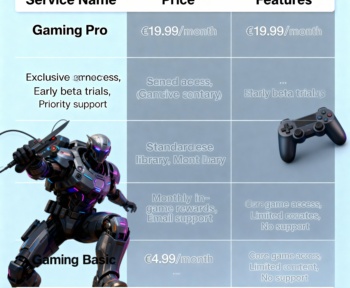In the sprawling, hyper-connected landscape of modern India, a quiet revolution is unfolding. It’s happening in the quiet moments on a daily commute, in the vibrant chatter of a college common room, and in the focused silence of a late-night gaming session. The world of online gaming has exploded from a niche hobby into a mainstream cultural and economic force. A simple search on Google reveals a national fascination, a torrent of queries for terms like real cash games, online games cash withdraw, and brand names that promise instant riches like RichSpin or BigWin. This digital gold rush signifies a massive public appetite for competition, entertainment, and the tantalizing prospect of reward.
But this explosion of interest has also created a complex and often confusing environment for the average player. What is the real difference between a game of skill and a game of chance? Which platforms are legitimate, and which are operating in the shadows? And most importantly, what is the true cost of chasing a digital jackpot?
Here at Blogheads, we believe that the most empowered player is an educated player. This is not another article promising you a shortcut to riches. This is a deep, educational analysis intended to serve as your definitive guide to navigating the Indian online gaming ecosystem responsibly. We will dissect the most popular gaming trends, compare the titans of the industry, and demystify the crucial new government policies that are reshaping the future of play. Our core thesis is simple but profound: the greatest rewards in gaming are found not in financial stakes, but in the mastery of skill, the thrill of strategy, and the joy of pure, unadulterated competition.
The ‘Why’ Behind the Rules: Government Intervention in a Digital Wild West
To understand the current state of online gaming in India, we must first understand why the government stepped in. For years, the digital gaming space operated in a legal grey area. The primary law, the Public Gambling Act of 1867, was written a century before the invention of the internet and was woefully inadequate for the digital age. This lack of clear federal oversight created a “digital Wild West,” where legitimate skill-gaming platforms coexisted with a proliferation of illegal offshore betting sites and apps making dubious claims.
This unregulated environment posed several significant risks that prompted government action:
- Consumer Harm and Financial Risk: Without proper oversight, players were vulnerable. There were no guarantees that a game was fair, no secure process for handling user funds, and no formal mechanism for resolving disputes. Stories of players losing significant sums of money, often to platforms that were mathematically rigged or simply refused to pay out winnings, became increasingly common. The rise of gaming addiction, particularly among the youth, became a pressing social concern.
- National Security and Money Laundering: Unregulated online gaming platforms, especially those based overseas, became a perfect channel for illicit activities. They could be used for money laundering, where “black” money is deposited and then “withdrawn” as clean winnings. Furthermore, many of these platforms were linked to entities in hostile nations, raising serious national security concerns about data harvesting and capital flight.
- Lack of a Unified Legal Framework: “Betting and gambling” is a state subject in India, leading to a patchwork of confusing and often contradictory laws. While states like Nagaland and Sikkim created their own licensing regimes, others like Telangana and Andhra Pradesh imposed blanket bans. This created immense confusion for both legitimate operators and players.
In response to these challenges, the Ministry of Electronics and Information Technology (MeitY) introduced the IT (Intermediary Guidelines and Digital Media Ethics Code) Amendment Rules, 2023. This was not a knee-jerk reaction but a carefully considered move to bring order, safety, and accountability to the industry.
The core innovation of these rules was the establishment of Self-Regulatory Bodies (SRBs). Instead of the government directly certifying every single game, it empowered industry bodies (like the E-Gaming Federation and the All India Gaming Federation) to act as the first line of verification. An SRB’s job is to audit a gaming platform and certify that it meets a strict set of criteria:
- It must be a “permissible online game,” meaning it is predominantly a game of skill, not a game of chance.
- It must not be designed to cause user harm or addiction.
- It must have robust KYC (Know Your Customer) processes to prevent minors from playing.
- It must have fair and transparent systems for handling user funds and withdrawals.
- It must hold a certificate from an independent lab proving its Random Number Generator (RNG) is fair and unpredictable.
This framework was designed to achieve a delicate balance: to protect consumers from harm while allowing the legitimate, skill-based gaming industry to thrive. It provides a clear “seal of approval” that players can look for. However, as we will explore, the existence of a regulated market does not eliminate personal financial risk, and the safest way to play remains the one that doesn’t involve your bank account at all.
The Cricket Colosseum: A Deep Comparison of Skill vs. Stakes
Cricket is more than a sport in India; it is a shared language, a unifying passion. It is no surprise, then, that online cricket games dominate the market. To understand the fundamental choice a player has, let’s conduct a deep comparison between two leading but philosophically opposite platforms, both mentioned as trendsetters by industry analysts like Orion Infosolutions: Dream11 and World Cricket Championship 3 (WCC3).
Dream11: The Pinnacle of Fantasy Sports (A Game of Predictive Skill)
Dream11 is the poster child for India’s real-money gaming (RMG) industry. It is a fantasy sports platform where the user’s skill is entirely predictive and analytical. The gameplay does not involve hitting a virtual ball; it involves acting as a team selector and strategist.
- The Skill Set: A successful Dream11 player must possess a deep, almost encyclopedic knowledge of cricket. They must analyze player form, pitch conditions, historical performance against specific opponents, and even factors like weather. They build a virtual team of 11 real-life players for an upcoming match, constrained by a salary cap. The points their virtual team scores are directly tied to the on-field performance of the real players (runs scored, wickets taken, catches, etc.). The skill is in forecasting reality.
- The Business Model: This is a classic RMG model. Users pay an entry fee to join a contest, which can range from a few rupees to thousands. The total prize pool is distributed among the winners based on a pre-defined structure, with Dream11 taking a platform fee (a “rake”) from the total pool. This is a legitimate, SRB-certified game of skill.
- The Player Experience: The thrill is tied to the live match. Every ball, every run, every wicket has a direct financial implication. The experience is one of high-stakes spectating, where your analytical prowess is put to the test against millions of other users.
World Cricket Championship 3 (WCC3): The Pinnacle of Simulation (A Game of Motor and Tactical Skill)
WCC3, on the other hand, represents the pinnacle of pure sports simulation. It is a free-to-play game where the user is the player on the field.
- The Skill Set: The skills required here are completely different. They are a combination of motor skills and real-time tactical decision-making.
- Motor Skills: Can you master the timing of your button press to execute a perfect cover drive? Can you use the joystick to place a yorker precisely at the base of the stumps? This is about hand-eye coordination and muscle memory.
- Tactical Skills: As a captain, you must set the field for each batsman. Do you attack with slips and a gully, or do you spread the field to save boundaries? As a batsman, you must read the bowler’s intent. Is he setting you up for an outswinger? This is about in-the-moment strategy.
- The Business Model: WCC3 is free to download and play. It makes money through optional in-app purchases (like unlocking new stadiums, player customizations, or premium game modes) and in-game advertising. The core gameplay is entirely accessible without spending any money.
- The Player Experience: The thrill is immersive and personal. It is the satisfaction of executing a perfect shot yourself, of taking a hat-trick with your own strategic bowling, of leading your team to victory in a virtual World Cup final. You compete for in-game currency, experience points, and a high rank on the global leaderboard.
The Deep Comparison: Where is the Real “Win”?
Both games are complex and require immense skill. But the nature of that skill and the psychological experience are worlds apart. In Dream11, a “win” is often influenced by external factors beyond your control—a star player having an off day, a dropped catch, a controversial umpire decision. The financial stake adds a layer of anxiety and can turn the joy of watching cricket into a stressful, results-oriented exercise.
In WCC3, a “win” is entirely your own. It is a direct result of your personal improvement and mastery of the game’s mechanics. A loss is not a financial setback; it is a data point, an opportunity to analyze your strategy and improve for the next match. It offers a pure, unadulterated form of competition, where the only thing at stake is your pride and your position on the leaderboard. This is a fundamentally healthier and, we argue, more rewarding way to engage with the sport you love.
The Casino Conundrum: Deconstructing the Allure of “Online Casino Games”
The search for “casino games” and “poker games” is another massive trend. This is where the distinction between skill and chance becomes even more critical, and where the government’s policies are at their strictest.
Games of Pure Chance (Strictly Prohibited in Most Advertising): Terms like slot machines, roulette, SpinCity, and LuckyDraw refer to games where the user’s skill has virtually no impact on the outcome. These are games of pure chance. While some states have specific exceptions, advertising these online for real money is broadly prohibited by Google’s policies and Indian law. Any platform offering these is likely operating illegally and poses a significant risk to users.
Games of Skill (The Regulated Space): Games like Poker and Rummy have been legally classified as games of skill. Let’s analyze Poker as a case study.
- The Skill in Poker: Poker is a game of incomplete information. The skill lies in mathematical calculation (pot odds, implied odds), psychological acumen (reading opponents, bluffing), and long-term strategic discipline (bankroll management, game selection). A professional player wins not by getting lucky cards, but by making mathematically and psychologically superior decisions over thousands of hands.
- The Real-Money Experience: On a certified RMG platform, playing poker involves real financial risk. The pressure of a large bet can force you to make suboptimal decisions. The emotional highs of winning and the lows of losing (a “bad beat”) can lead to “tilt,” a state of emotional frustration where a player makes reckless decisions, often losing their entire bankroll.
- The Free-to-Play Alternative: Now, consider a free-to-play poker platform. Here, you can experience 100% of the strategic complexity with 0% of the financial risk. This is a “strategy sandbox.”
- Learn the Math: You can practice calculating pot odds on every hand without the fear of making a costly mistake.
- Experiment with Styles: You can try playing a hyper-aggressive style for an hour, then a super-tight style, to see how it affects your results, without any real-world consequences.
- Focus on Decision Quality: The only metric that matters is the quality of your decision, not the outcome of the hand. Did you make the correct, positive expected value (+EV) play, even if you got unlucky and lost? This is the mindset of a true professional, and it can only be developed in a stress-free environment.
The free-to-play poker world allows you to become a student of the game. It strips away the distracting noise of money and lets you focus on the beautiful, intricate strategy that lies at its core.
Our Philosophy and Your Safest Strategy
The Indian government has created rules to make the online gaming world safer. They have provided a path for legitimate skill-gaming companies to operate transparently. But the ultimate responsibility for safety lies with you, the player.
Our philosophy at Blogheads is built on a simple premise: the most enjoyable and sustainable way to engage with the world of online gaming is to remove the financial element entirely.
We educate our readers to adopt this mindset:
- Be a Player, Not a Payer: Seek out the thousands of high-quality, free-to-play games available. Celebrate your in-game achievements, your leaderboard rank, and your strategic growth.
- Understand the Business Model: Remember that any real-money game is a business designed to be profitable. The odds are always, in the long run, tilted in favor of the house.
- Value Your Skill: The true value you gain from gaming is the development of your own skills—be it strategic thinking, quick reflexes, or analytical prowess. These are assets that stay with you long after a monetary prize is gone.
- Recognize the Dangers: Be hyper-aware of the risks of addiction and financial loss. If you ever feel the “fun” has stopped and a sense of compulsion has set in, it is a critical warning sign to step away.





